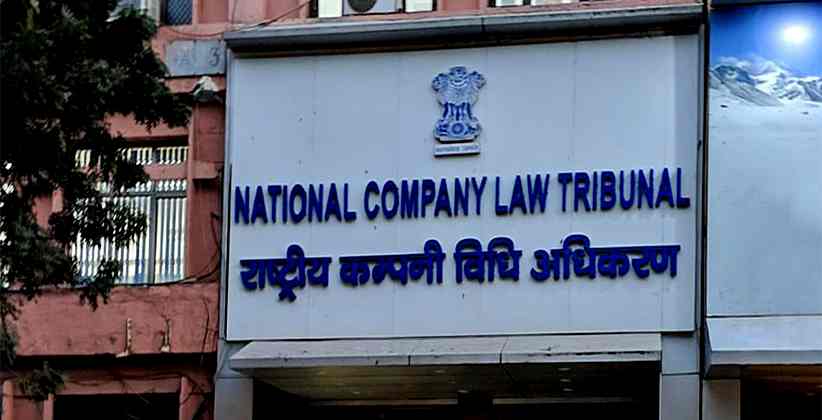
NCLT admits petition alleging mismanagement, fraud by Omaxe
by Opinion Express / 16 January 2021
New Delhi, Jan 16 (IANS) The Chandigarh-bench of National Company Law Tribunal (NCLT) has admitted a petition filed against Omaxe Ltd over alleged acts of oppression and mismanagement claiming by the company and its management.
The petition filed by Sunil Goel, the former Joint Managing Director of the company levels allegations against Rohtas Goel, the Chairman and Managing Director of Omaxe for indulging in financial fraud, siphoning of funds, insider trading and inflation of turnover of the company.
The petition said that, in June 2017 Omaxe took a loan of Rs 250 crore from Indiabulls Housing Finance Limited as per the minutes of the Executive Committee's meeting. It said that though Sunil Goel was a part of the Executive Committee, he did not receive any notice of the meeting wherein resolution for borrowing of loan of Rs 250 crores was approved.
"It is also stated that Sunil Goel has been repeatedly appointed as Joint Managing Director of Omaxe Limited till 27.09.2017 on which date he was illegally ousted in the 28th Annual General Meeting of the company where several resolutions, declaring dividend only to non-promoter shareholders and appointment of Seema Prasad as Director of Omaxe Limited, were passed," it said.
The respondents, including Rohtas Goel illegally restrained the petitioners from participating in the Annual General Meeting by using force and threats, claimed Sunil Goel in his petition.
Further, as per the plea, Rohtas was also involved in exclusion of the petitioners from the affairs of the company to "gain control over the company and all its subsidiaries in order to financially disable the petitioners".
Rohtas allegedly conducted the affairs of the company in an oppressive manner towards the petitioners and also towards the interest of the company.
"It is stated that owing to such financial mismanagement and fraudulent transactions the financial debts have increased and profits have dipped down. Various letters have been issued on behalf of the petitioners, objecting to the illegal and oppressive acts of respondents, but in vain," said the petition.
Founded in 1989, the company has its presence in eight states across 27 cities. Rohtas Goel is the Chairman and Managing Director of Omaxe Limited and represents the largest promoter shareholder group of the company. Sunil Goel, younger brother of Rohtas Goel represents the second largest promoter shareholder group having 22 per cent shareholding in the company.
Primarily, the shareholding of the promoter and promoter group is through Guild Builders Private Limited, which holds around 68.45 per cent shares of Omaxe Limited and is a holding company of Omaxe Limited.
In 2017, differences arose between the brothers with regard to functioning of the company, following which Sunil Goel was removed from the company in September 2017, which he claims as an illegal removal.

India's war on drugs escalates
by Sumit Kumar Singh / 26 December 2020New Delhi, Dec 26 (IANS) The Indian government is planning to revamp its federal drug law enforcement and intelligence agency - Narcotics Control Bureau (NCB) -- with creation of 3,689 new posts, canine squads, cyber and intelligence units and creation of a dedicated prosecution wing for the organisation.
The proposal aims at redesigning the governance architecture of NCB, its capacity of investigation and intelligence and making it more professional and effective. The bureau comes under Ministry of Home Affairs and is currently headed by 1984-batch IPS officer Rakesh Asthana.
The government has planned to create 3,689 posts in various grades up to level-15, thereby raising the strength of NCB from existing 1,107 to 4,751. There is also plan to create four new regional offices, thus raising the number of regional offices from existing three to seven. Creation of 17 new zonal offices and upgrading all existing 12 sub-zonal offices into zonal offices thereby raising the number of field offices to 42, including 13 existing regional offices, has also been planned.
There are plans to set up a dedicated prosecution wing to provide for in-house expertise for legal advice and taking up all cases filed under Narcotic Drugs and Psychotropic Substances Act, a Canine Wing to identify drugs and Drug Intelligence Unit. Setting up of a Cyber Technical Cell is also planned to tackle the challenges arising out of modern technological methods used by drug traffickers. The decision to revamp was taken after government found that the drug traffickers are increasingly using the Dark Net for trafficking and crypto-currencies for payment.
This was disclosed in a report of the Parliamentary Standing Committee on Home Affairs headed by Congress Deputy Leader in Rajya Sabha, Anand Sharma, on the Demands for Grants of Ministry of Home Affairs placed in Parliament on December 21.The report stated: "The drug traffickers are increasingly using the Dark Net for trafficking in drugs. The medium offers complete anonymity because of the use of onion routing, use of Crypto Currency for payment and Pretty Good Privacy (PGP) encryption."
The committee stressed upon that NCB's expertise and capacity to deal with this "need to be augmented". "Nonetheless, with available resources the NCB arrested a Dark Net vendor who was operating as an active vendor of Psychotropic Drugs in Dark Net markets. This network had international linkages spread across India, Singapore and USA. During the operation, approximately 135 kgs of different psychotropic tablets were seized and four persons were arrested," the report stated.
Keeping in view the constant changing pattern of drug trafficking and its abuse and the need to develop skills of officers to respond to the challenges arising out of the same, the Ministry of Home Affairs has, in December, 2019 set up a Training Centre on drug law enforcement within the campus of the Central Academy of Police Training, Bhopal. This institute is mandated to impart domain training to the officers of NCB and those of other Central and State Agencies involved in drug law enforcement.
For the purpose of Coordination among all states and central agencies in drug-related issues, a Narco Coordination mechanism was set up by MHA in 2016. This mechanism provides a common platform for all drug-related issues in India. Further for cooperation and information-sharing at international level, the NCB has entered into agreements with 42 countries. In addition, the NCB liaises with the International Narcotics Control Board (INCB) and UNODC regulary.
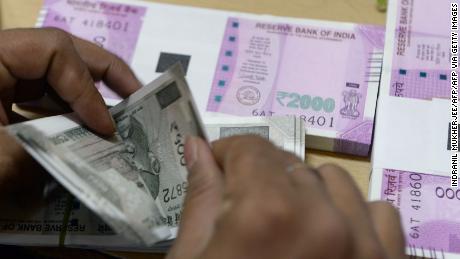
Railway bribery gate: ED on fast track
by IANS - Inputs from Agencies / 12 December 2020
New Delhi, Dec 12 (IANS) The accused named in the 2013 railway bribery for post scam was layering funds through multiple companies and persons to show them as normal business transactions, the Enforcement Directorate (ED) has found in its investigation. IANS has viewed the chargesheet filed by the ED in the 2013 bribe for posting case.
The ED said, "The statements of the witnesses recorded clearly established the intents of the accused persons and their involvement in the schedule offences and generation of proceeds of crime by way of layering and integration of funds through a number of entities and persons."
The ED had filed a chargesheet in the railway bribery case in October this year against IRSSE officer Mahesh Kumar, senior Congress leader and former Railway Minister Pawan Kumar Bansal's nephew Vijay Singla, N. Manjunath, Sandeep Goyal, Ajay Garg, Sandhir, Sushil Daga, C.V. Venugopal, M.V. Murali Krishna and Venketeshwara Rail Nirman Pvt Ltd under sections of the Prevention of Money Laundering Act (PMLA).
The ED has also demanded punishment for those named in the chargesheet and confiscation of their assets. The ED case is based on the FIR and chargesheet filed by the Central Bureau of Investigation (CBI) against Mahesh Kumar, Singla, Goyal and seven other accused persons.
The ED said that Mahesh Kumar and Goyal in their statements have stated that the purpose of their meeting at Hotel Taj in Mumbai and Hotel Lalit in Delhi was to discuss a marriage proposal.
"However, as per the CBI chargesheet, the outcome of the meeting at Hotel Taj was shared by Goyal with Garg. And Garg in his statement to the ED stated that Goyal had informed him that Mahesh Kumar was trying to become Member (Electrical) in railway board and Goyal was in touch with Manjunath who wanted to get Mahesh Kumar posted as Member (Electrical)," the ED claimed.
"There remains no doubt that that the meetings at Hotel Taj and Hotel Lalit were not only to discuss a marriage proposal, but also for planning of appointment of Mahesh Kumar as Member (Electrical) and the bribes amount to be paid," the ED claimed.
It further said that Manjunath, Venugopal and Krishna in their statements have claimed that their contribution amounts were business transactions. "However, the persons through which the funds were routed and arranged at Delhi in cash have confirmed in their statements that these payments were arranged on the request of the accused persons. However, these payments were adjusted by them in their books of accounts," it alleged.
The ED further alleged that the bankig transactions made by the accused persons were made to mobilise the funds through "layering" by using a number of accounts of entities and persons and finally integrated the funds in the form of "cash" at Delhi.
"Statements of witnesses clearly establishes the modus-operandi of the accused and purpose of transactions through a number of entities. Later on, the funds layered were shown by these persons as business transactions but the same were proceeds of crime," it added.
The ED also said that the money was layered in as many as nine companies before being handed to the people who then took it to Chandigarh. The statements were recorded by the ED in 2017 and 2019.
The CBI had caught Singla red-handed while accepting a bribe of Rs 89.68 lakh for the favourable posting of Mahesh Kumar. The ED in July this year had questioned Bansal for several hours in Chandigarh in connection with the case. Bansal had to step down from the post amid the accusations.
In May last year, the ED had attached the Rs 89 lakh amount which the CBI seized from the office of Bansal's nephew Singla in 2013 in the corruption case related to appointments at top positions in the railways, when the Congress leader was the Union Railway Minister in the United Progressive Alliance-2 regime.
Singla demanded Rs 10 crore through Sandeep Goyal from N. Manjunath to get Mahesh Kumar posted as Member (Electrical), the ED had said, quoting the CBI probe.
(Anand Singh can be contacted at Anand.s@ians.in)
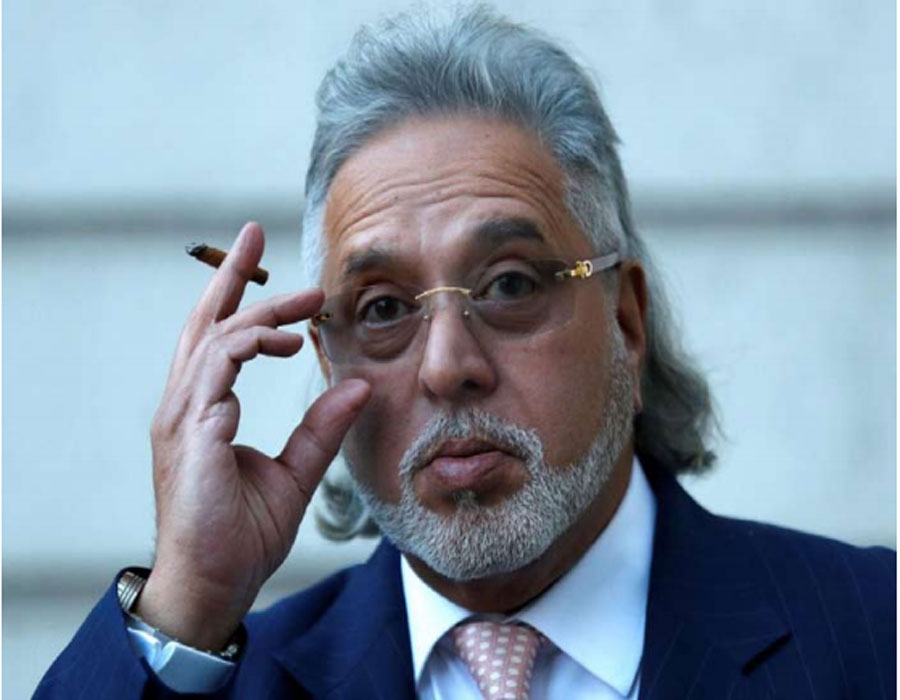
INDIA’S BANKING WOES & ITS ECONOMIC IMPACT
by Dr Rahul Misra / 06 November 2020There’s no doubt that the UPA left poison pills behind; the Government must get tough. The Indian banking sector is in crisis and someone needs to call out the culprit, the UPA Government, which allowed ridiculous loans to be approved. If facts are investigated, it will emerge that several gold-plated loans were given to favoured businessmen. It is, therefore, not surprising that journalists, friendly to the previous regime, are flying kites and are trying to discredit legitimate business loans given to people close to the current administration. When Congress leaders attack the Modi Government for allowing defaulters such as Vijay Mallya to ‘escape’, one cannot but be astounded at the hypocrisy of such spokespersons. It was the UPA that gave massive loans which did not have a semblance of logic. Anybody with a modicum of intelligence could see that Mallya’s airline was in a tailspin and was going to be crushed under the one-time liquor baron’s immense ego. And it is not just Mallya to whom loans that defied logic were given, infrastructure projects from roads to airports were ‘gold-plated’, the cost of building a kilometre of four-lane highway inexplicably jumped four-times in that decade as mafia builders ripped off the banks with Government’s tacit support.
As much as one would say that Prime Minister Narendra Modi and Finance Minister Arun Jaitley have been hobbled by the ineptitude and down-right thuggery of the previous administration, the fact is that they are the ones in power today. Blaming the previous Government is not an excuse that can be taken to voters after completing three-quarters of one’s term in power. There’s no doubt that the global financial crisis, coupled with stricter rules, implemented by both former and present Reserve Bank of India Governors, Raghuram Rajan and Urjit Patel respectively, have made most Indian banks reluctant to give loans to small and medium industries. These projects are essential to get job growth going and, thus, encourage a consumption economy. India’s economic growth has been constrained over the previous few quarters because of this fact. While a 6.5 per cent growth rate is nothing to be ashamed of, it is certainly not enough to keep pace with India’s ‘demographic dividend’ which runs the risk of becoming a ‘demographic burden’. Jaitley rightly noted that large industrial enterprises do find it easier to raise funds from bond markets and from foreign banks due to their credit ratings, something that self-appointed social media economists fail to understand.
With gross non-performing assets growing from Rs 5.02 lakh crore to Rs 6.41 lakh crore between March 2016 and March 2017, the situation is critical. The new insolvency law brought in by the Government, despite some flaws, is a beginning in the process to recapitalisation. Crony capitalists encouraged by corrupt politicians of the previous regime should see their projects taken away and their assets built up by siphoning funds from their companies, should be auctioned off. Yes, the banks and the Government will need to take a haircut, a massive one at that, but that’s the only way forward. The Government must think before it recapitalises the banking system. Bankers should realise that things are not as bad as they were in the aftermath of the most corrupt administration India has ever seen.
The drop in the NPA to capital ratios in 2016 looks hopeful but this is partly due to the additional capital received by many public sector banks as part of the government’s Indradhanush programme. Also, in light of the revised disclosures of NPA levels by some large private sector banks in the last few weeks, the 2016 ratios are likely to be much worse.
We also compare the growth rates of NPAs, capital and loans across the two crisis episodes. The average annual growth rates of GNPA and NNPA over the five-year period from 1997-2001 were 8.5% and 9.8%, respectively. During this period, bank capital grew 13.14% and bank loans grew 15.87%. The corresponding numbers for the current crisis are much worse. The average GNPA and NNPA growth rates for the period 2011-2015 were 45.9% and 54.9%, respectively. The average growth rate of bank capital for this period was 16.1%. Bank loans grew at 16.2%.
This shows that during the last NPA crisis, bank capital grew at a higher rate than NPAs. While the NPA to loans ratio was higher then, banks were not undercapitalized. They had better ability to withstand the problem. In the current crisis, however, the growth rate of NPAs has been considerably higher than that of bank capital, further underscoring the severity of the crisis. The growth rates of bank loans on the other hand have been similar across both crisis episodes.
The emphasis on the alternative measure of the NPA problem also highlights the importance of capital in resolving the crisis. If the NPA to capital ratio is to be restored to a level that was prevalent during the high growth years of 2003-2007, the capital base has to roughly quadruple. Even if we assume that roughly 50% of the net NPAs will be recovered by the banking sector, the capital base has to double. This is unlikely to happen through retained profits or sale of real estate or other similar strategies.
An attempt to revive the banking sector must include a credible commitment of capital for it to be meaningful. In absence of capital and accompanying structural reforms, any solution will be incomplete and the banking sector may remain in the quagmire for a long time to come.
Impact of NPA on Economy
The problem of NPAs in the Indian banking system is one of the foremost and the most formidable problems that had impact the entire banking system. Higher NPA leds to following adverse impact on Economy:
- Depositors do not get rightful returns and many times may lose uninsured deposits. Banks may begin charging higher interest rates on some products to compensate Non-performing loan losses
- Bank shareholders are adversely affected
- Bad loans imply redirecting of funds from good projects to bad ones. Hence, the economy suffers due to loss of good projects and failure of bad investments
- When bank do not get loan repayment or interest payments, liquidity problems may ensue.
Steps taken by RBI and Government in last few years to curb NPA
- Government has launched Mission Indradhanush to make the working of public sector bank more transparent and professional in order to curb the menace of NPA in future.
- Government has introduced Bankruptcy code which will make it easier for banks to recover the loans from the debtors.
- RBI introduced number of measures in last few years which include:
- Tightening the Corporate Debt Restructuring (CDR) mechanism,
- Setting up a Joint Lenders’ Forum, prodding banks to disclose the real picture of bad loans, asking them to increase provisioning for stressed assets,
- Introducing a 5:25 scheme where loans are to be amortized over 25 years with refinancing option after every five years, and
- Empowering them to take majority control in defaulting companies under the Strategic Debt Restructuring (SDR) scheme.
It is a matter of grave concern that due to the NPA problem, the entire economic activity of the country has come to a gridding halt. Modi government is doing its best to resolve the issue with carrot and stick policy though the sentiments are extremely damp. It will take some time to restore the confidence of the people in the banking system and the banker must own responsibility of serving the country honestly, then the problem is likely to be resolved. The Covid 19 will escalate the NPA crisis to the next level so the banks and enforcement agencies of the government must plan effective realization of the bad and stolen assets within stipulated time before the banks takes irreversible hit.
Writer is Associate Editor & banking and finance expert.
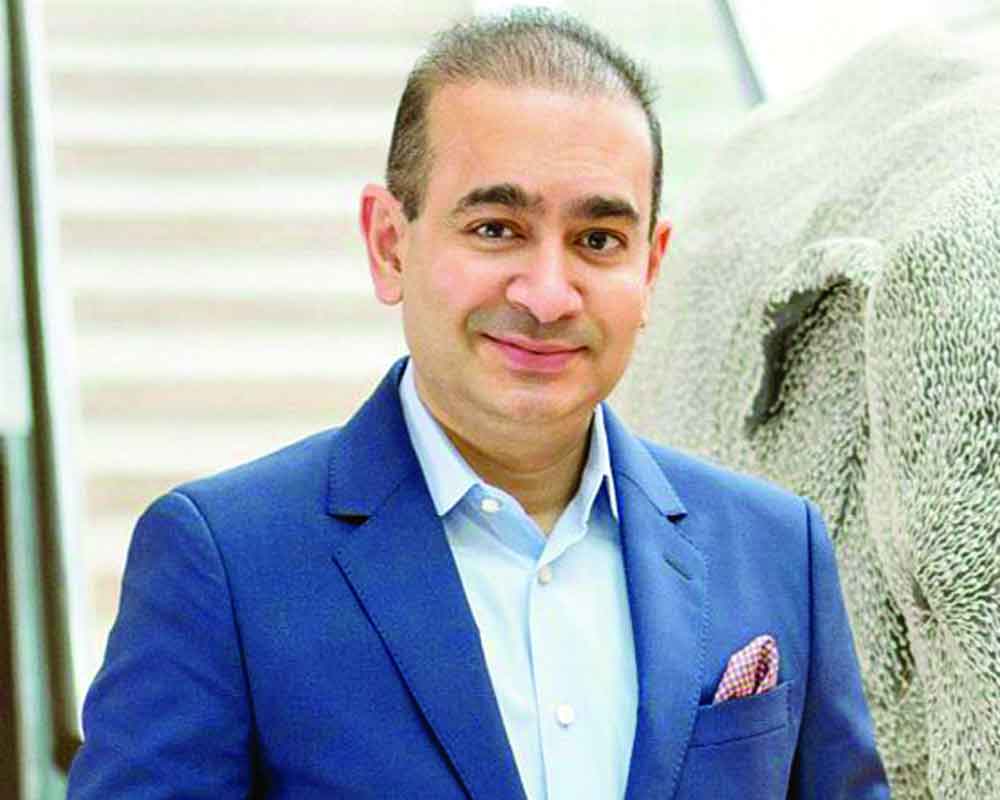
Chasing the shadow of a ghost
by Opinion Express / 23 March 2019While the extradition of Nirav Modi will take time, real justice is possible only when his protectors and bankers are brought to book
With just a couple of weeks to go before the general election, the arrest of fugitive diamond merchant Nirav Modi, the key accused in the Rs 13,500 crore Punjab National Bank scam, in London seems convenient for the ruling BJP and has given an edge to its “MainBhiChowkidar” campaign. It is a different matter though that had it taken up its policing responsibilities seriously early on and not at the fag end of its term, the likes of Nirav and his uncle Mehul Choksi wouldn’t have easily fled the country in the first place. Now with liquor baron Vijay Mallya’s extradition closer to reality, the BJP wants to play up Nirav’s arrest as an example of its intent to clean up society when fact of the matter is the businessman’s cover was blown by a UK daily and not by our government. This despite the fact that he was blatantly roaming free, had started a business, procured an insurance number, paid taxes to his area council and even planned plastic surgery to acquire a new identity as a UK resident. So no matter how much the BJP tries to appropriate the credit or the Opposition parties might say “I told you so”, the reality is his repatriation will take some time coming. In the end, his stay at an overcrowded jail during Holi is minuscule dispensation of justice considering the long road ahead to extradition. The economic offences against Nirav are, of course, stronger than they were in Mallya’s case but the documents are humongous. Even assuming that the London courts speed up the process, though they are in no way going to play by the political imperatives of India, it would take no less than a year to conclude matters.
Despite an extradition treaty with the UK, we have got back only one out of 28 most wanted in the last decade. The extradition process is so intricately complex and painstakingly time-consuming that most offenders abuse it to seek refuge in that country. There are layers and layers of inquiry and cross-checks of the veracity of the claims for extradition there, no matter how serious the offence may appear to us. Besides, an appeal for asylum, which would but naturally imply a threat perception of the fugitive in his home country, is vetted very seriously there. Then there’s the issue of human rights and political witch hunt. Mallya claimed immunity, citing a biased media trial back home that could impair a fair inquiry, a government-controlled, motivated probe and our poor prison conditions, which compared to UK, will always appear short. Article 9 of the Extradition Treaty between India and the UK recognises unjust and oppressive proceedings as a ground to deny requests of the home country. Nirav Modi is expected to appeal on similar lines. But the biggest question that hovers over us is once the agencies bring him back and get him to spill the names of bank officials and politicians who helped him in the entire fraud, will there be an unsparing crackdown on the latter irrespective of whoever is elected in May? The diamond merchant not only fraudulently got LoUs (letters of undertaking) issued and FLCs (foreign letters of credit) enhanced but sold faulty diamonds at high prices, converted crores of black money during demonetisation into white and travelled on a revoked passport. Nirav Modi is a byproduct of a corrupt system, and till the flag bearers of that system are brought to book, justice wouldn’t be fair.
Writer & Courtesy: The Pioneer
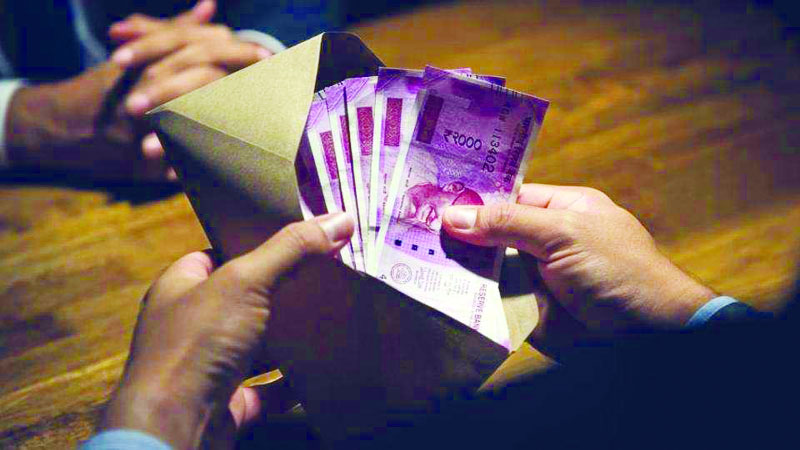
India’s Minor Corruption Rise: Still a Long Way to Go
by Opinion Express / 31 January 2019The most significant thing about India’s rise — by three ranks — to the 78th position in Transparency International’s corruption perceptions index is the fact that the country has jumped past its bigger Eastern neighbour, China. In fact, the Middle Kingdom has dropped dramatically in the corruption rankings. Predictably, the communist media will dismiss the report but the fact is that under President Xi Jinping, who made fighting corruption a supposed cornerstone of his administration, the unscrupulous boomed thanks to projects like the Belt and Road Initiative. Corruption in China was just a stick used by Xi to eliminate his political rivals. However, India’s slight rise overtaking China is also a sign that under the Narendra Modi dispensation, there has been a palpable sense that large-scale political corruption reduced. This is not to say that every estate of the Indian state, including the fourth estate, the media, is riddled with scams. But as they say, we must take baby steps to start with.
India’s problem is not just of corruption across the executive but that the malaise has taken root in society much like an invasive plant species and it is extremely difficult to remove it. The current state of Indian banks because of their profligate lending habits was in no small part due to questionable understanding between parties. Besides one has to understand that corruption is not always a case of money changing hands, it is also that network of favours. A job for a relative, school admission for a child, the worst forms of a corrupt system rarely involve money. Removing that will take years of work and a mindset change that everything, from chai-pani as the telephone lineman once asked for just to do his job to the payoffs for contracts, is wrong and that means teaching children at a very young age that corruption is bad. But in a country with an economic disparity as wide as that in India, eliminating corruption is almost impossible. That does not mean that we should not do our utmost to try and reduce it. There is little authentic economic data to prove this but rough calculations made by anti-corruption watchdogs show that we lose a percentage point or more of growth every year thanks to graft cases. Because it almost always benefits a few at the cost of the many. The poor municipal roads and potholes courtesy the a contractor ‘mafia’ in many cities are evidence of this. So yes, while we should be pleased with our rise and have a bit of schadenfreude about China’s decline, we should not lose sight of the fact that the road ahead to reducing corruption is a long and a hard one.
Writer and Courtesy: The Pioneer
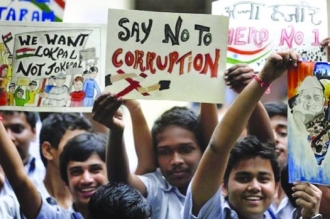
Fighting Corruption: Let’s Get Serious
by Ajoy Kumar / 08 June 2018The BJP Government talks about undertaking corruption and presents transparency by the means of new agendas.
The pervasiveness of money power and corruption in the political and governance process, as the attempts by the BJP to buy MLAs in the aftermath of the Karnataka Assembly election confirmed, is intense. The Government talks big on taking on graft but its actions betray a very different agenda. The Electoral Bonds Scheme is a prime example of its hypocrisy.
The touted motive
The Electoral Bonds Scheme, which was introduced on January 2, 2018 is a perfect example of the duplicitous nature of the Government. In a Press note titled “Why Electoral Bonds are Necessary?” the Finance Minister of India, Arun Jaitley, said “as against a total non-transparency in the present system of cash donations where the donor, the done, the quantum of donations and the nature of expenditure are all undisclosed, some element of transparency would be introduced in as much as all donors declare in their accounts the amount of bonds that they have purchased and all parties declare the quantum of bonds that they have received”. Therefore, the Press note seems to give us the impression that while introducing absolute transparency in the political funding process is difficult, the BJP wishes to introduce some amount of transparency to the funding process, which is why the Scheme has been introduced. In reality, however, if one examines the amendments made to the other laws in India, pursuant to the introduction of the Scheme, a truer and much more somber picture begins to appear.
How the Scheme works
The Scheme permits any person who is a citizen of India or is an entity incorporated/established in India to purchase an electoral bond in favour of certain political party within a period of 10 days during the time frames specified by the government. This electoral bond, which has been purchased, may then be encashed by political parties by depositing the bonds within in the political party’s designated bank account. In this regard, in order to appreciate how this Scheme actually encourages a lack of transparency it is important to examine the manner in which funding by way of electoral bonds is to be disclosed by political parties compared to other sources of funding.
In this regard, an examination of the Representation of People Act, 1951 (RP Act) and the Income Tax Act, 1961 (I-T Act) is illuminating. The RP Act, inter alia, deals with the conduct of political parties including the funding of political parties. Section 29C of the RP Act requires political parties to prepare a report of all contributions received by a political party in excess of Rs 20,000 from a person or a company in a financial year and to submit this report to the Election Commission. After the introduction of the Scheme and amendments introduced under the Finance Act, 2017, the RP Act now creates an exemption to this reporting requirement for contributions made in the form of electoral bonds to political parties. While, the Scheme specifies that the know your customer (KYC) norms of a bank will apply to the buyers of an electoral bond, this does not help introduce any real transparency because the Election Commission will be unable to access this data which is the confidential information of banks.
In effect therefore, the Election Commission will have little to no information on the contributions received by political parties received in the form of electoral bonds. Another law that has been amended to further discourage transparency is the I-T Act. Prior to the amendment under the Finance Act, 2017, in order to avail tax benefits and reliefs under the Act, a political party was required to maintain a record of each contribution that was over Rs 20,000. After the amendment, the contributions made to a political party by way of electoral bonds have been excluded from the ambit of this requirement. Therefore, in order to avail reliefs under the I-T Act, no such record is required to be maintained by political parties if they are funded through electoral bonds.
It is therefore obvious, that while the government made claims that it was introducing this Scheme to bring greater transparency, in reality the government has made the entire system more opaque and attempted to fool the ordinary citizen by glossing over these unpleasant details.
How do we stem the rot?
While it is important to critically analyze the Government for its lack of drive and motivation in tackling corruption and introducing transparency in the political system, it is also important to suggest measures that in my opinion can help stem the rot of corruption in our system.
One such measure is a shift in the approach of our investigative agencies towards investigating and prosecuting corruption. The Central Bureau of Investigation (CBI) is the premier investigating agency in India that typically investigates cases of corruption in India. Currently the CBI looks into all cases of corruption across departments and more importantly across the entire spectrum of public officials in our system. In case of the Indian police service, this means that allegations of corruption against a police constable as well as a Director General of Police are investigated by our investigating agencies. While there is no denying that all acts of corruption are condemnable and should be dealt with sternly, our primary goal should be to find the most efficient way to tackle corruption as comprehensively as possible.
In order to achieve this objective, it is my opinion that more focus should be placed on investigating and prosecuting high level Government officials like Joint Secretary & above (Equivalent Rank) as well as MLA’s and MP’s. By ensuring that high-ranking corrupt officials are brought to justice and honest, competent officers occupy higher positions of responsibility it is likely that such competent, honest individuals will implement practices and policies that encourage transparency and reduce corruption in the entire department and therefore help ensure that day to day corruption that ordinary citizens face are minimized as well. By adopting such an approach, the CBI can use its resources in a more focused, efficient manner rather than spreading itself thin chasing every instance of corruption.
As the saying goes, sunlight is the best disinfectant. So another way in which corruption can be reduced is by introducing greater transparency in our system. The Right to Information Act was a big step in this direction. In order to move forward in this direction, we should strive to ensure that all government documents (other than such matters which are sensitive or relating to national security) should be accessible to the public. Such a move will help ensure that the citizens of the country to provide a check against an abuse of power in the Government.
At the end of the day, we must remember that the problem of corruption is a massive problem that cannot be tackled by sweeping statements or empty gestures. It requires a sustained committed approach and should not be reduced to a marketing campaign. However, I am aware that the BJP and the Prime Minister are big advocates of the hashtag culture so I humbly request Prime Minister Modi to undertake this #seriousaboutcorruption challenge.
(The writer is Jharkhand PCC president, former MP and IPS officer. Views expressed are personal)
Writer: Ajoy Kumar
Courtesy:The Pioneer

Nirav Modi is a new poster boy to destroy banking sector in India
by Opinion Express / 16 February 2018Scale of fraud in PNB shows there is something deeply rotten in India’s public sector banks.
As you drive past Nirav Modi’s flagship store in South Delhi’s posh Defence Colony you see billboards of Bollywood and Hollywood stars adorned with Modi’s diamonds. In the last few years, Nirav Modi had become one of India’s richest men and his chain of jewelry stores across India and the world became highly regarded. But what is emerging in the past few days, especially from Punjab National Bank (PNB), is that Nirav Modi’s empire appears to have been built on fraud. First, news of a Rs. 280 crore fraud emerged and it was followed by the disclosure of a whopping Rs. 11 ,800 crore fraud where the state-owned lender found itself exposed to bad loans made to Nirav and his associates on the basis of forged documents and through corrupt officials. What is remarkable is not that the details of the scam emerged now, but also that the scam apparently had been going on since 2011 and that officials were notified a few years ago. At the same time, Nirav and his associates managed to flee the country before news of the mega-fraud broke.
That said, the Managing Director of PNB has not clarified the extent of the loot but this highlights how taxpayers are left holding the can for banking failures in the public sector, and while the Congress will gloat over this scam it would be inopportune for them to do so because the scam began under their watch. Many questions are still being asked about this fraud and the well-connected individuals at the heart of the alleged loot. But the obvious question should be how it took six and a half years to come to light if indeed money had been lent to these individuals. Did it only come to light as the Reserve Bank of India made reporting Non-Performing Assets a far stricter process for Indian banks? And how will the scam impact not only PNB but also other state-owned lenders? All this comes in the wake of the State Bank of India, the country’s largest bank, having declared some spectacular losses in the recently concluded quarter. With their books bleeding and the RBI’s latest strictures making it difficult to keep on ‘evergreen’ loans, access to banking credit for firms large and small will become even more difficult. But it isn’t just this story that should trouble the Government and the RBI. There is also the curious case of the Bank of Baroda which apparently broke all laws by banking with the scandal-linked Gupta family in South Africa which is accused of ‘state capture’ in that country. It appears the bank broke all its own rules in banking transactions with the Gupta family and bank managers even implored the family for favours.
The Indian public banking sector is in a deep state of rot and four years into his administration, Narendra Modi should be worried. Despite lower inter- est rates, credit off-take has been weak in India with banks almost scared to lend money; the scale of the NPA problem under the previous UPA government was like a poison pill planted to undermine Modi’s promise of job growth. However, some positive news is emerging with the push towards improving things for small and medium enterprises with better banking services. But is there more bad news on the horizon? The banking sector in India needs structural reforms, Modi government must address the problem with immediate effect.
Inputs from The Pioneer www.dailypioneer.com
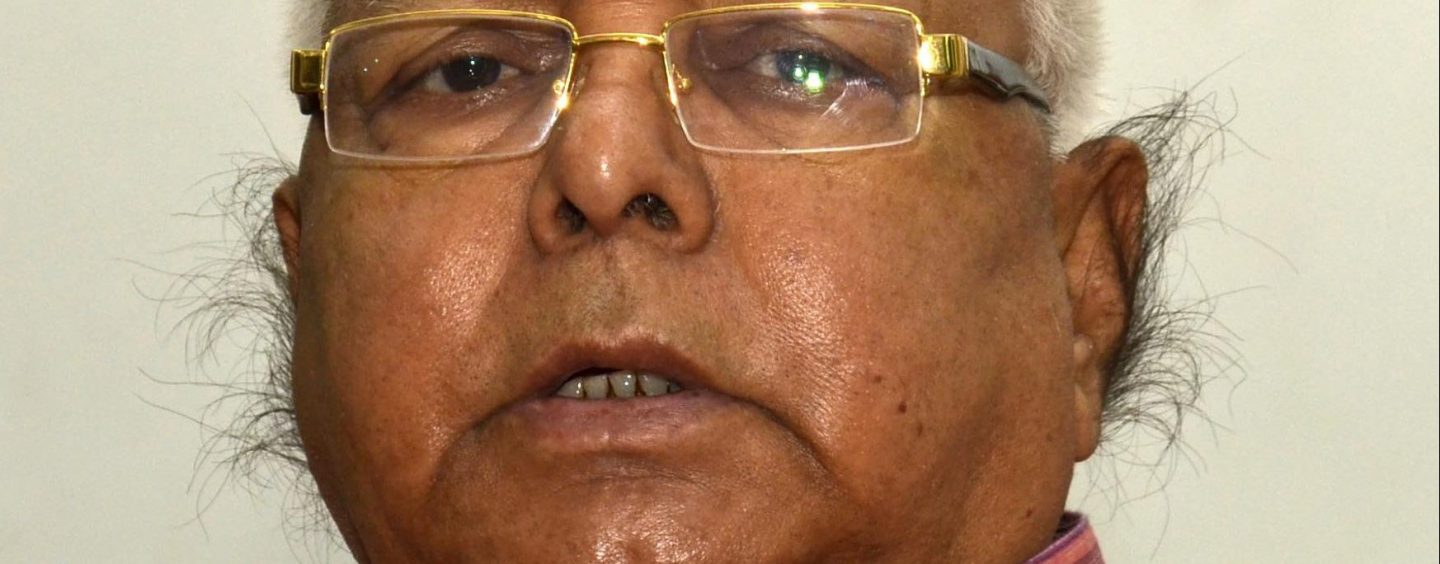
Law catches up with Lalu
by Opinion Express / 09 January 2018RJD chief could not wish away the ghost of fodder scam
A special CBI court has sentenced RJD chief Lalu Prasad to three- and-a-half years in jail and imposed a fine of Rs 10 lakh on him in a fodder scam case relating to fraudulent withdrawal of Rs 89.27 lakh from the Deoghar Treasury 21 years ago.
The punishment was handed down to 69-year-old Prasad by CBI court judge Shiv Pal Singh. This is the second time that he has been jailed in the fodder scam. The judge also imposed a fine totalling Rs 10 lakhs on him.
He was sentenced to three-and-a- half years in jail in a fodder scam case for offences of cheating, along with criminal conspiracy, and other sections under the Indian Penal Code (IPC).
Prasad was also given a jail term of three years and six months in the case under the Prevention of Corruption Act (PCA). He was fined Rs 5 lakh each under the IPC and the PCA, CBI counsel Rakesh Prasad said, adding that failure to pay the fine would entail another six months in jail.
The sentences will run concurrently, he said. Prasad, who was convicted in the second case on December 23, is at present lodged in the Birsa Munda Central Jail. The judge conveyed the punishment to Prasad through video- conferencing. The court had yesterday concluded arguments on the quantum of sentence against Prasad in connection with the withdrawal of Rs 89.27 lakh from the Deoghar Treasury between 1990 and 1994 when he was the chief minister of Bihar. It had also heard arguments on the issue of punishment for 10 others convicted in the case.
Prasad was given a prison term of five years on September 30, 2013, in another fodder scam case. He was re- leased on bail by the Supreme Court after having remained in jail for over two-and-a-half months.
The CBI special judge had on December 23 acquitted former Bihar chief minister Jagannath Mishra and five others in the case. In 1996, the Patna High Court had ordered an inquiry into the fodder scam cases and a charge sheet in the Deogarh Treasury case was filed against 38 people on October 27, 1997. Eleven of them died and three turned approvers, while two other accused confessed and were convicted in 2006-07, a CBI official said.
In 1996, the Patna High Court had ordered an inquiry into the fodder scam cases and a charge sheet in the Deog- arh Treasury case was filed against 38 people on October 27, 1997. Eleven of them died and three turned approvers, while two other accused confessed and were convicted in 2006-07, a CBI offi- cial said.
On September 30, 2013, Yadav, Jagannath Mishra and several others were convicted in another case pertaining to illegal withdrawal of Rs 37.7 crore from the C .. On September 30, 2013, Yadav, Jagannath Mishra and several others were convicted in another case pertain- ing to illegal withdrawal of Rs 37.7 crore from the Chaibasa Treasury in the early 1990s.
Prasad faces another three fodder scam cases for illegal withdrawal of Rs 3.97 crore from the Dumka Treasury, Rs 36 crore from the Chaibasa Treasury and Rs 184 crore from the Doranda Treasury.
Meanwhile, Prasad’s son Tejashwi Yadav said in Patna that they will move high court against his father’s conviction. “We will move high court against Lalu Prasad’s conviction and appeal for bail after studying the court verdict,” he said.

HOW CONGRESS AND BJP FUNDED PROMOTED A MONSTER CALLED GURMEET RAM RAHIM
by Dr Rahul Misra / 01 September 2017If Gurmeet Singh turned into a monstrous head of a dera, blame it on the subsequent political dispensations
It is a matter of great concern that in today’s well connected world, large scale violence broke out in parts of Haryana and Punjab soon after a CBI court in Panchkula convicted Dera Sacha Sauda chief Gurmeet Ram Rahim Singh of rape. Over 40 people had been killed in Haryana in the violence at the time of writing this story. The BJP government in Haryana stands accused of gross administrative failure. On the eve of the verdict, it allowed lakhs of Dera supporters, or Premis as they are called, to gather at Panchkula. Dera supporters also mobilized themselves at Sirsa, the Dera’s bastion. The administrative failure of the Manohar Lal Khattar government stems from its political compulsions. The BJP in Haryana enjoys close ties with Dera Sacha Sauda and this seems to have impaired it from cracking down on Dera goons on time.
Ram Rahim’s Congress relationship
In the past, Congress leader Capt Amrinder Singh has used the might of Dera Empire to win elections. Akali Dal and SGPC is bitterly opposing Dera religious overtone due to Ram Rahim’s direct challenge to the authority of Sikh panth. In fact, Badal was regularly pushing for Ram Rahim prosecution on several cases but Ram Rahim was always one up to overcome Badal’s challenge. And Capt capitalized the situation by tacitly seeking Dera support and winning previous 2002 assembly elections and in recent concluded Punjab assembly election. In the adjourning state of Haryana, BS Hooda was coordinating political management with Ram Rahim Dera cult to secure two successive victories in the two previous elections. However, Baba shifted his loyalty to BJP post 2014 General Election victory resulting in BJP’s huge electoral gains in 2014 Haryana assembly elections. Surely, Ram Rahim Dera is having large following in Haryana, Punjab, Delhi, Himanchal Pradesh and West UP but it reflects the weakness of the political system that is dependent on GOD man for easy vote bank to win elections. Modern day politicians are looking for swift and quick results by engaging money and muscle power and God Man style of quasi politics suits ’s modern day politicians.

Ram Rahim’s BJP links
Nothing embodies this failure more than Haryana education minister Ram Bilas Sharma’s comment that the Section 144 imposed in Panchkula “did not apply to Dera supporters”. He even went to the extent of defending the people who had gathered at Panchkula. He reportedly described the Dera supporters as “simple, peace-loving people” who wouldn’t “harm even a plant”. Sharma’s links with the Dera are well known. He is reported to have recently donated Rs 51 lakh to the Dera as a mark of his sup- port for the cult.
But it isn’t just Sharma. A number of leaders in the Haryana BJP have deep ties with the Dera and this close relationship has the blessings of the party’s top leadership. The other major backer of Ram rahim in the Haryana BJP is health minister Anil Vij. Vij donated Rs 50 lakh from Haryana government funds to the Dera’s sports project. Another minister, Manish Grover, who holds the portfolios of printing, stationery and urban local bodies, also donated Rs 11 lakh to the Dera from his discretionary fund. The support for the Dera extended even to the Central government, with Union minister for sports Vijay Goel also promising to support the Dera with Central funds. Between the three BJP leaders Sharma, Vij and Grover the Dera was given over Rs 1 crore. This is despite the fact that even at the time of the donations, Ram Rahim faced charges of rape and murder.
What is even more sinister is that the BJP’s Central leadership – Prime Minister Narendra Modi as well as BJP president Amit Shah were active participants in this cozy relationship of the party with Dera. During the campaign for the Haryana Assembly elections in 2014, PM Modi reportedly showered praise on the rape accused godman while addressing a rally in Sirsa. Apparently, this was the first time that a major political leader had openly invoked the Dera during an election campaign. The Congress and Akali Dal leaders, who often sought support of the Dera in the past, made it a point not to publically name the Dera or its controversial chief.

On the other hand, the 2014 Haryana election was also the first time when Dera Ram Rahim chief openly voiced his preference for a political party the BJP. Before this, Ram Rahim’s diktat to vote for one party or the other was communicated through more secretive ways to his followers, mostly through the political wing of the Dera.
According to a report, the deal with Ram Rahim was sealed by none other than BJP president Amit Shah. The report said that Shah met Ram Rahim in the first week of October and “sought his blessings” for the Assembly elections in Haryana and Maharashtra. The report said that six days after the meeting with Shah, BJP general Secretary Kailash Vijayvargiya took 44 BJP candidates for the Haryana polls to meet the Dera chief. Apparently, Ram Rahim showered his blessings on the BJP candidates during the meeting. The Modi government also used Ram Rahim to push its Swachh Bharat initiative. BJP insiders say that Ram Rahim is a valuable political ally for the party, as he commands the loyalty of over 1 crore followers across the country, particularly in Haryana and Punjab.
“Dera commands a large voter base of over a crore, with a large percentage of Dalits. They vote en bloc. BJP leaders have been in regular touch with Ram Rahim and expected him to play a major role in bringing votes the party’s way in Haryana and Punjab in the 2019 Lok Sabha elections,” a senior BJP leader told Catch on the condition of anonymity. The leader admitted that the Khattar government had no choice but to go soft on the Dera supporters and let them have their way. “Dera followers are not small in number, in fact they are huge. We have to move very, very cautiously. Patience is the need of the hour. A wrong move and things can go out of control. We have already seen that in the 2016 Jat agitation,” the leader said.
Dera and the RSS game plan
For the BJP, the Dera’s significance isn’t just related to elections. It is said to occupy a key place in the broader game plan of the BJP’s parent organisation the Rashtriya Swayamsevak Sangh. “Sangh’s aims are not always associated with the BJP. The BJP is focused on elections, Sangh works for society. Sangh has been cultivating various Deras Radha Soami Satsang, Dera Sacha Sauda etc for some years now,” a Sangh functionary based in Amritsar had told Catch during the Punjab elections earlier this year. “The Deras work with the Dalit community, particularly Dalit Sikhs, who are ill treated by Panthic Sikhs. The Deras help in bringing them back into the Hindu fold,” the functionary added.
The functionary was extremely categorical in saying that the interests of the Sangh were at odds with Panthic politics. “They (Panthic Sikhs) emphasise on the minority nature of Sikhs. We don’t see them in that way. Often even mainstream Sikh leaders take radical positions or appease radical elements. The Deras can help us counter this,” he added. Apparently to pursue this agenda, RSS Sarsanghchalak Mohan Bhagwat spent some time at Mansa in South Punjab in 2014. During his visit, he reportedly met the head of the Radhasoami sect Baba Gurinder Singh Dhillon.
The Dera Sacha Sauda has its roots in the Radha Soami sect. Its founder Khema Malaka Balochistani Shah Mastana, was a disciple of Baba Sawan Singh of the Radhasoami lineage. It is clear that in Punjab’s sociopolitical landscape, RSS and the Deras are on the same side. Even Panthic outfits, mainstream as well as radical ones, realize that such an alliance has taken place. According to Punjab police, the same radical group is said to have been behind the killings of RSS leader Jagdish Gagneja last year and Dera Sacha Sauda supporters earlier this year. The violence by Dera supporters is likely to increase social tensions in Haryana and Punjab. The BJP’s political and financial support to Dera Sacha Sauda is singularly to blame for the present mess, the mere perception that Ram Rahim was larger than law has fueled the violence, The motorcade of 200 cars, over 1 lakh supporters around court, hapless administration present an extremely sorry picture of the governance that Modi has promised in 2014. It is imperative that Prime Minister must take the situation under his direct control because he is a symbol of maximum governance and people of the country trust him. The compromises in governance even at state level will hurt brand Modi simply because people of Haryana had voted for BJP keeping in view Modi’s credibility and face. Lastly, people of the country must own responsibility of following quality religious leadership. India is a land of Jagatguru Adi Shankara, Guru Nanak Dev, Ramakrishna, Vivekanand, Praramhansa Yoganand and many more. We should be careful in selection of Guru and Saints, there should be strictly no God Man policy to be adopted by people to discourage fraudulent conman taking over the physiological control of innocent people.
– By Dr Rahul Misra (Associate Editor, Opinion Express)
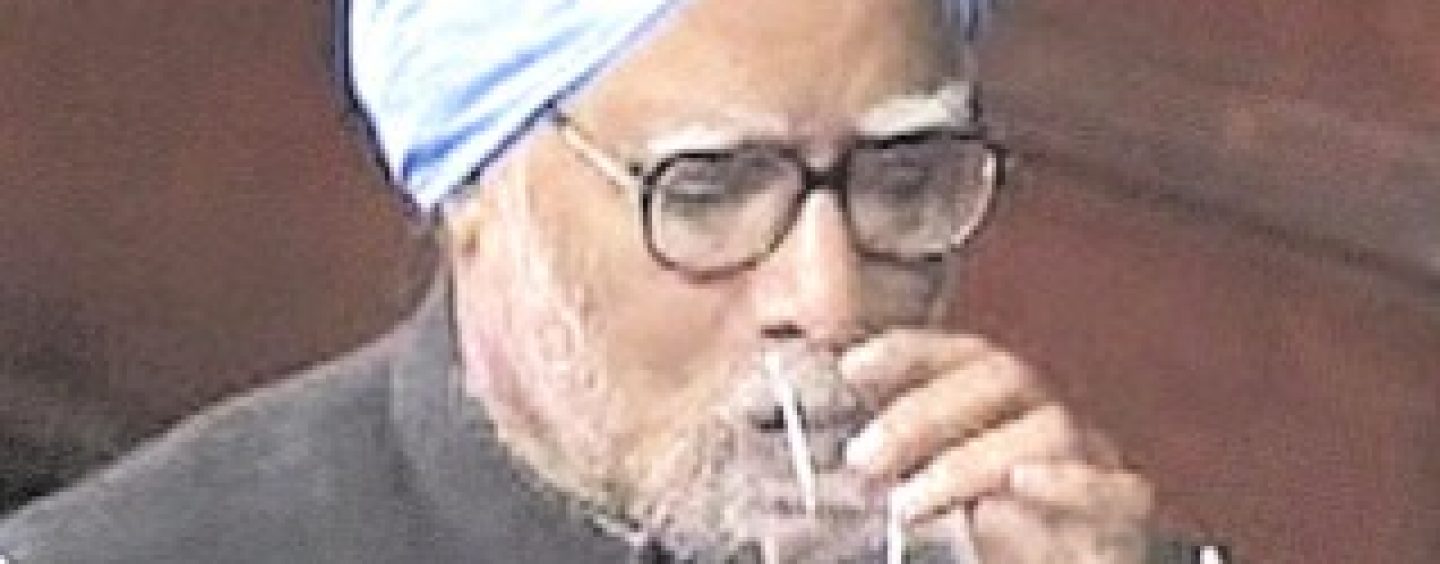
PM blames Raja, but will this dislodge charges of culpability?
by Prashant Tewari / 01 October 2016Prime Minister Manmohan Singh has finally broken his silence to offer his defense in the 2G spectrum scam, which is fast paralyzing the government. He has essentially blamed former telecom minister A Raja and coalition pressures for all the wrongdoings and promised that the guilty will be punished irrespective of rank or influence.
While admitting that several complaints were made to him about Raja’s policies, the PM said he had no reason to believe anything seriously wrong had been done. He then admitted that he could not make up his mind that something serious was wrong, which later prevented him from intervening when Raja made a comeback as telecom minister in UPA II.
While the PM says he went along with Raja’s claims of no auctions based on TRAI recommendations, approval of the Telecom Commission and concurrence by the finance ministry, it is clear that all of these could easily have been checked by the PMO and corrections made on the spot. Clearly, that did not happen.
The problem is not so much about Raja’s claims, which multiple investigations have proved false, but about the detailed information given by him to the PM, on which the PM failed to act, which in turn led to the perpetration of the scam in 2008.
The PM has made no attempt to deny that he was in the know. Arun Shourie recently made startling revelations that he had given the PM details of the scam beneficiaries and paper trail in August-September 2009, but did not receive a response from either the PM or his office. Shourie also alleged that the same whistle blower was introduced to the CBI, who engaged him, but refused to act.
The CBI FIR was filed immediately after this in October 2009, but the CBI’s affidavit in the Supreme Court shows that it did very little till the SC started hearing Prashant Bhushan’s PIL on the 2G scam in October 2010. This inaction acquires new color in the context of Shourie’s allegations, considering that the CBI is accountable to the PM.
By now, various reports/documents suggest that the PM knew of Raja’s intent and modus operandi well before 2G licenses were finally awarded on January 10, 2010. So why did he fail to act? The PM claims it’s on account of coalition pressures. Yet, the same PM refused to bow to coalition pressure from the Left par- ties during the Indo-US nuclear deal, displaying a will of steel by staking the future of the government for what he considered was good for India.
This is valuable evidence that the PM can resist pressure when he wants to. Another explanation offered is that the PM is simply too busy to address all  correspondence in minute detail. Yet in is simply too busy to address all correspondence in minute detail. Yet in Raja’s case, the PM found time to exchange five letters directly, including one in which the PM detailed the alternatives that Raja could consider, so the second theory doesn’t stick either.
correspondence in minute detail. Yet in is simply too busy to address all correspondence in minute detail. Yet in Raja’s case, the PM found time to exchange five letters directly, including one in which the PM detailed the alternatives that Raja could consider, so the second theory doesn’t stick either.
How do the facts stack up? Is the PM indeed culpable in the Rs 1.76 lakh crore 2G spectrum scam? Let’s first test Singh’s acknowledged strengths: strong personal financial integrity and a mature handle on economics and public policy. While the worms just don’t stop tumbling out from the 2G scam investigations, so far there is no incriminating financial evidence linking Singh to the scam.
Moreover, the PM, in his two-page letter of November 2, 2007 to Raja, states in Section 4 of its annexure, “In order that spectrum use efficiency gets directly linked with the correct pricing of spectrum, consider (i) introduction of a trans- parent methodology of auction, wherever legally and technically feasible, and (ii) revision of entry fee which is currently bench marked on old spectrum auction figures.”
In effect, the PM favored auctions in spite of Raja’s claims that TRAI had not recommended auctions, and was also careful to protect exchequer revenues by suggesting “revision of entry fee” as a prudent alternative. Responding within hours on the same day, a defiant minister Raja wrote: “It will be unfair, discriminatory, arbitrary and capricious to auction spectrum to new applicants as it will not give them level playing field.” Singh scores on economics and public policy. Clearly, if Singh had enforced his advice, there would have been no 2G scam.
The PM’s culpability comes into question only if it can be established that Raja acted after informing the PM and without misleading him in any way. For this we need to examine the events leading to Raja’s resignation and arrest.
The five specific allegations against Raja are:
1. He claimed to implement TRAI’s recommendations regarding “no cap” on the number of operators, but in fact, violated this by capping the number of licenses processed at 122 out of 575 applicants. In 2009, the courts observed that Raja had acted contrary to this claim.
2. He defied the law minister to circumvent scrutiny by an eGoM. This violates governments’ transaction of business rules under Article 77 of the Constitution.
3. He followed a bespoke first come first served (FCFS) process over transparent auctions even though the demand far out- weighed supply. This violates provisions of the Constitution, Article 14, 19 (i) (g) and 21.
4. He illegally and arbitrarily advanced the cut-off date from October 1, 2007 to September 25, 2007, a move that favored handpicked companies. The courts have declared this action illegal.
5. Finally, he manipulated the FCFS process by changing the established priority based on “date of application” to a new arbitrary criteria of “compliance with LoI” which meant “first to pay gets spectrum”. The CAG’s report shows that insider information pay gets spectrum”. The CAG’s report shows that insider information coupled with these tailor made norms, allowed a few companies to fraudulently access spectrum by jumping the queue.
The fact that the PM was well apprised of these impending policy violations is evident from a closer look at the correspondence between them. Five letters were exchanged between Raja and the PM directly – three on one day (November 2, 2007), followed by Raja’s last letter on December 26, 2007 and the PM’s two-line acknowledgment on January 3, 2008 exactly one week before the infamous award of 2G licenses on January 10, 2010.
Of the five listed wrongdoings which were later found either illegal or in violation of administrative procedure/rules, Raja informed the PM about the first four through his two letters D.O. No. 20-100/2007-AS.I of November 2, 2007 written two months before the scam broke out.
The last, regarding the change of the FCFS definition was conveyed to the PM on December 26, 2007, through a detailed six-page letter including annexure, DO No. 260/M(C&IT)/VIP/2007 – two weeks before the spectrum scam broke out.
This shows that every single action by Raja, except ones under scrutiny under the Prevention of Corruption Act, were known to the PM in detail and well ahead of Raja’s actions. It is equally clear from the turn of events: CBI’s FIR of October 21, 2009, CAG Report of November 2010 and the Shivraj Patil one man committee report of January 31, 2011, that whatever Raja told the PM, he followed to the letter. The DoT corroborates this in its affidavit of November 11, 2010 in the Supreme Court which, citing Raja’s letter of November 2, 2007 and December 26, 2007 admits, “Not only was there no difference of opinion with the Honorable PM, his office was duly kept informed of all decisions”.
In conclusion, and based on the facts, it is clear that all allegations against Raja of wrongdoing and illegal acts which have led to the loss of Rs 1.76 lakh crore as reported by the CAG and eventually, his resignation and arrest, were known, in detail and in advance, by the PM.
In summary, the PM offered Raja sound advice on public policy that was anchored in strong economic principles, but consistently failed to reign in a minister turned rogue since 2007, which makes allegations of his culpability in the 2G spectrum scam difficult to dislodge. It is these serious lapses that the PM must defend.
And formation of JPC by the government has started on the bitter note with ugly exchange of words on the floor of house hence the proceedings subsequent are expected to raise political temperature to a new high. But the million dollar question for us remains as to whether we can tame corruption and clean up the mess to avoid huge embarrassment that country is facing due to series of scams? Though time is limited for everyone.
– Prashant Tewari (Editor in Chief, OE)
FREE Download
OPINION EXPRESS MAGAZINE
Offer of the Month








